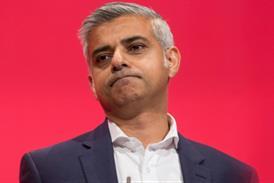Over the past few weeks, our new prime minister has rightly won many new admirers, probably most significantly, following his breakthrough on Northern Ireland. Is the outcome perfect? Arguably not. But that old saying that you should never let perfect be the enemy of good was never more appropriate.

Rishi Sunak unlocked an issue that has hampered trade and threatened the integrity of the Good Friday Agreement, which has kept the peace on the island of Ireland for the past 25 years.
It was a master stroke to have King Charles meet president of the European Commission Ursula von der Leyen, because just as significant has been Sunak’s warming of the hitherto frosty relationship between the UK and the EU, which has meant so many of the potential benefits of a post-Brexit relationship with Europe have hitherto been lost.
He has massively improved our relationship with our nearest continental neighbour France, which is so important to the solution to the small boats issue that will be a key test of his success. And despite much bluster beforehand, his Windsor Framework bill went through the Commons with only 29 votes against, seven of whom were the Democratic Unionist Party MPs, for whom nothing short of perfect will ever be good enough.
The point of this praise for Rishi is not to persuade my readers to vote Tory at the next election. It is simply to observe that after more than three years of utterly incoherent government under Theresa May, Boris Johnson and
Liz Truss, this administration now looks as if it knows where it is going and might actually have a clue as to how to get there. Add that to the next election being probably 18 months away and I’d venture that all bets might just be off.
I’ve been there before. In 1992, I knew I’d win my ultra-safe seat in Epping Forest, but I assumed we’d lose the election. We had been in power for 13 years and were behind in the polls, we had defenestrated former prime minister Margaret Thatcher and then Labour leader Neil Kinnock was pretty convinced he’d shortly be in Downing Street.
And yet, and yet… Incoming Labour leader John Smith’s shadow Budget would have meant almost everyone in the country paying more tax. And incumbent prime minister John Major’s soap box turned out to be persuasive. In the event, the Tories had an overall majority of 21 seats.
Five years later, the party was out on its ear. New Labour prime minister Tony Blair was in his pomp after 18 years of Tory government. I had announced my intention to leave Parliament a year earlier, because it was obvious we would be out of power for at least 10 years. In the event it was 13.
My parliamentary colleagues have long debated whether the outcome of the next election will be the same as 1992 or 1997. And now there is the distinct possibility it will be 1992 again.
Consider the facts. For Labour leader Keir Starmer to win an overall majority, he needs a swing greater than Blair’s in 1997. He has to win big in Scotland and, despite first minister Nicola Sturgeon’s resignation, that doesn’t look likely against the current Scottish National Party.
The Tories get an extra dozen seats from the upcoming boundary review and YouGov polling suggests Sunak is already seen as more decisive than Starmer, who is, by common consent, not Blair. When times are tough, voters tend to go for the devil they know.
What does all this mean? Only that what might have been assumed impossible a few months ago is now possible. The Tories could still blow it. Johnson may be forced out of the Commons, but may yet survive. He and Truss are no fans of Rishi. The migrant issue may yet blow up in his face. The Ukraine war will drag on, and inflation may not fall as fast as economists predict. But in Downing Street, they are daring to dream.
Steve Norris is chairman of Soho Estates
































No comments yet